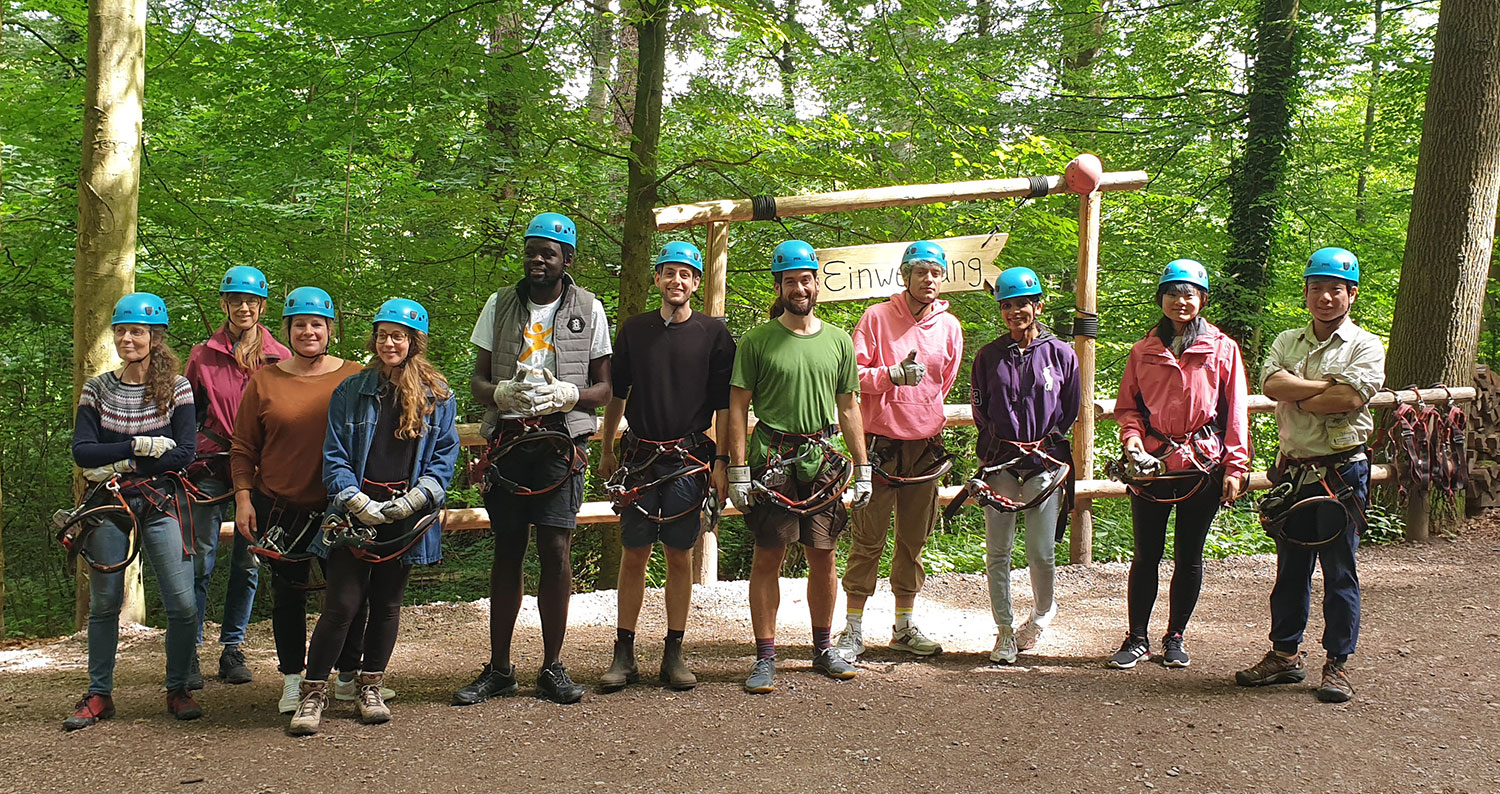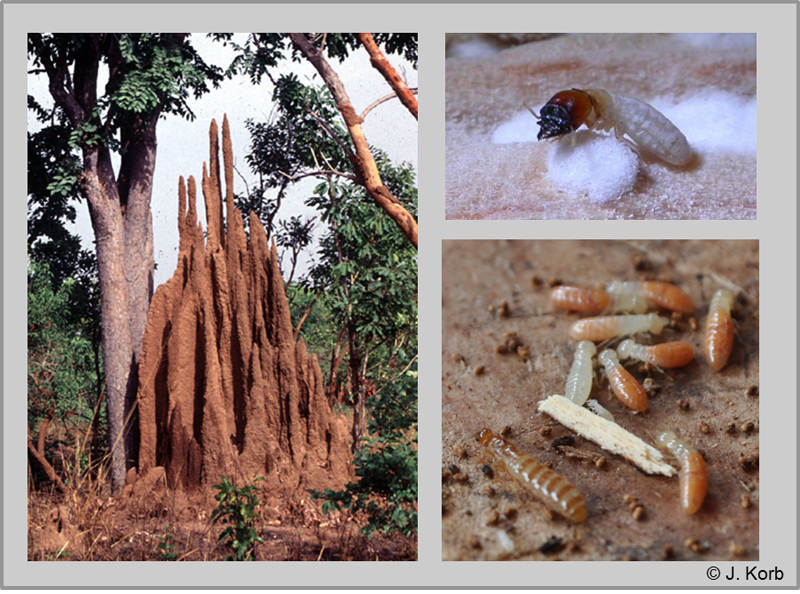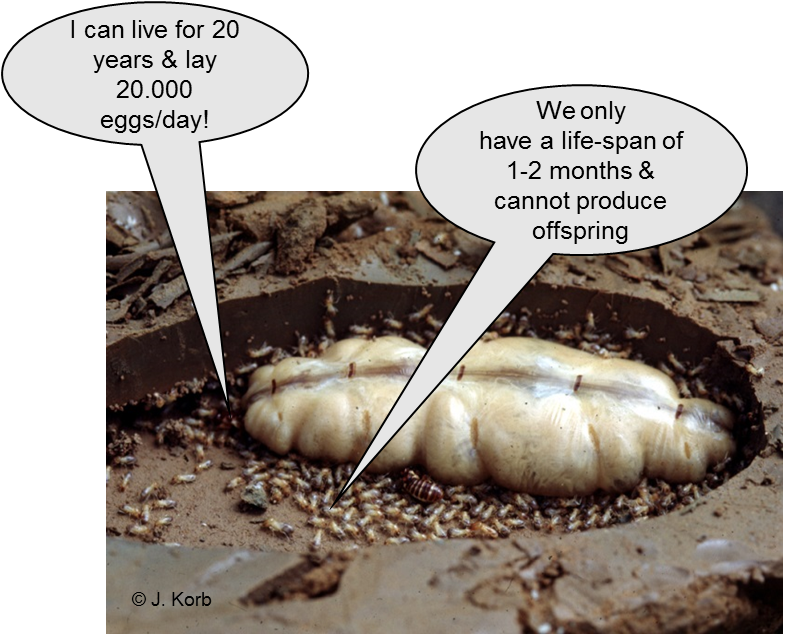Korb Lab
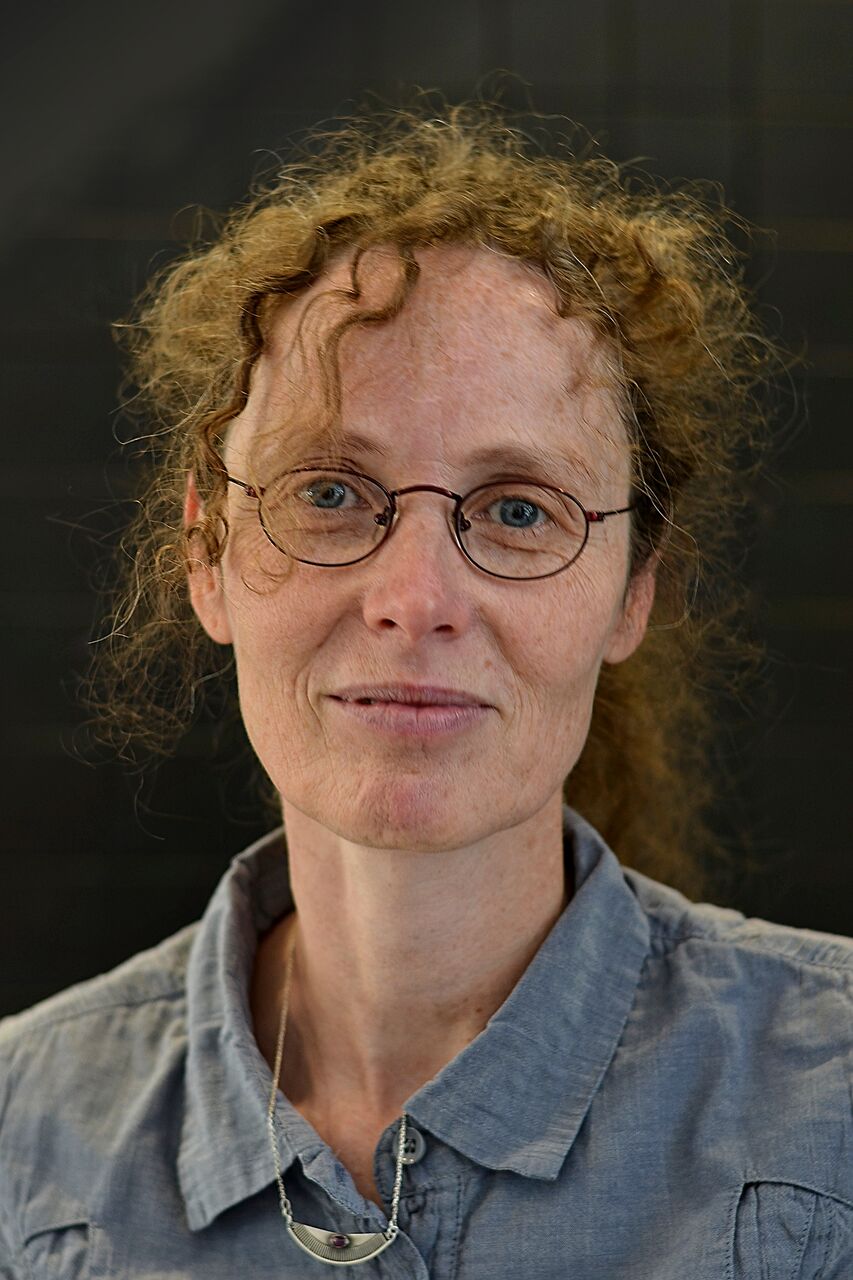
Evolutionary Biology & Ecology, University of Freiburg,
Hauptstr. 1
D-79104 Freiburg
Phone: ++49 (0)761 203 2546
E-Mail: judith.korb@biologie.uni-freiburg.de
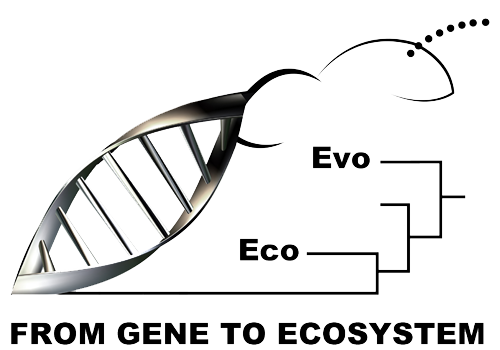 What do we do? What do we find interesting?
What do we do? What do we find interesting?
We are studying evolutionary and ecological questions, especially at the interface between both fields. The phenotype of organisms is the outcome of gene-by-environment interactions and ecosystems are the result of organism-by-environment interactions.
Despite this clear linkage, both disciplines developed largely independently and there is little cross-talk when it comes to ideas and concepts. With our research, we aim at linking both disciplines.
Our major research questions are:
1) Why and when do organisms cooperate?
Classical Darwinian evolution is driven by competition. Yet cooperation is widespread and it has been crucial for the evolution of genomes, eukaryotes, multicellular organisms and societies.
We are studying which factors favour cooperation over conflict, including ecology, relatedness, and evolutionary history. We use a broad range of study systems:
- Why do conspecifics cooperate and form social groups/societies?
- Social evolution in termites
- Conflict in termites
- Human decision-making
- Why do species cooperate and mutualistic interactions dominate then parasitic ones?
- Termites and their gut symbionts
- Drosophila and their gut symbionts
- Burying beetles and mites
2) How do organisms cooperate?
The understanding of the factors driving social evolution/cooperation remains incomplete if its underlying mechanisms are unstudied. We investigate these mechanisms at several levels (behaviour, molecular genetics, endocrine and socio-chemical signalling) aiming at understanding their interactions. Our current main foci are:
Sociogenomics – ‘Queen-genes’: Identification & characterisation od Genes underlying reproductive division of labour
- Chemical communication in termites and ants
- Ageing: Mechanisms underlying the long life of termite and ant queens
- Phenotypic plasticity – Regulation of caste development: Influence of juvenile hormone for caste diversity
3) Why are there so many species in the tropics?
Tropical communities harbour many more species than temperate regions. How is it possible that they can coexist? We are studying the importance of niche, chance, history and land use on community assembly, especially in African ecosystems.
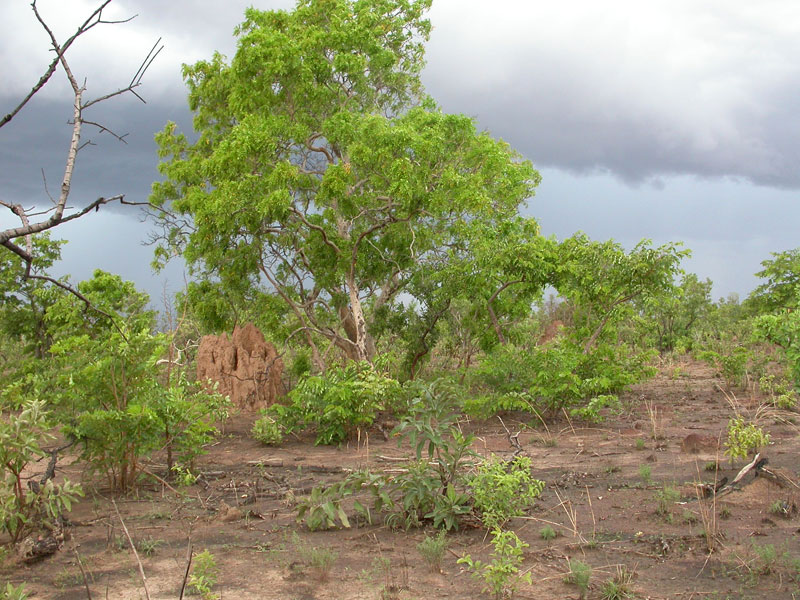
- Termite communities of West-African savannas
- Termite communities of West-African forests
- Termite communities from Colombia
Arthropod communities of barked and de-barked trees in West-Africa


